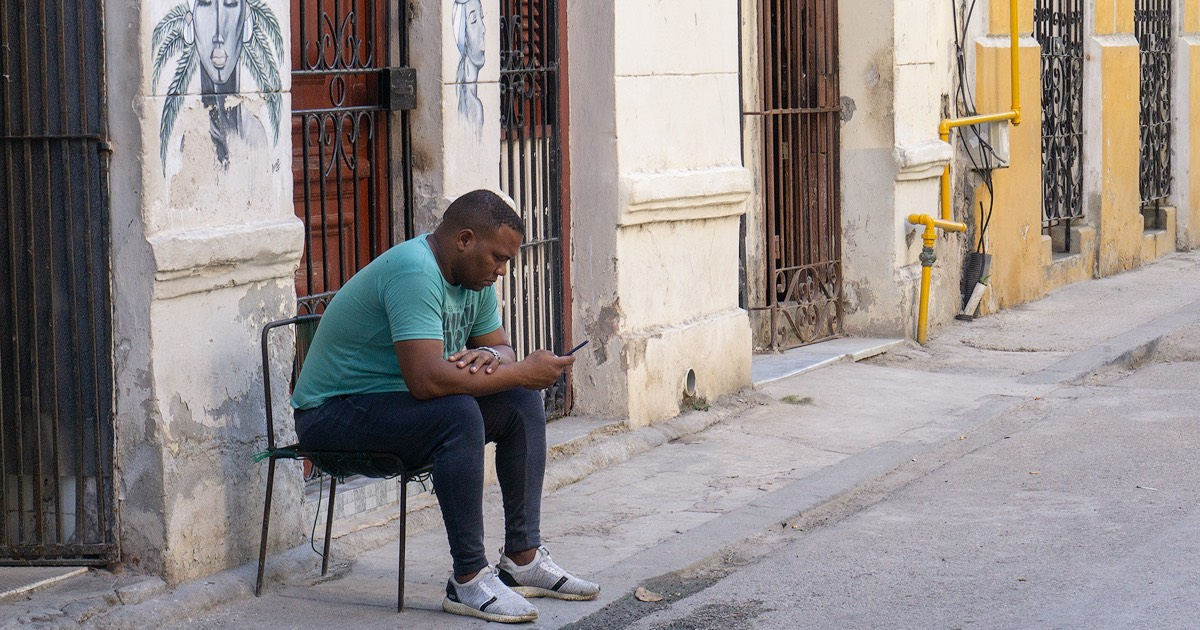
Related videos:
A Cuban publicly reported a scam method that operates on social media and seeks to deceive unsuspecting users through fraudulent bank transactions. As he explained, he quickly detected the attempt and decided to share his experience to warn others.
Reinaldo Suárez explained in the group Facebook “Bazar Santiago de Cuba” the modus operandi of the scammers.
In his post, he explained that they use ads on Facebook offering cash in exchange for bank transfers.
Once the victim shows interest, they ask for their phone number, access their profile, copy a photo of a friend, and contact the person through WhatsApp, pretending to be that friend in order to gain their trust.
"I have managed the social media for a recycled clothing store, so I have experience in identifying these kinds of traps. I spotted it right away and took it as entertainment," said Suárez, who also shared screenshots with examples of fraudulent posts, as well as the phone numbers and accounts associated with the scammer.
In the shared screenshots, it can be seen how Suárez, in a mocking tone and as a way to confirm that it was a scammer, asked seemingly nonsensical questions.
Among them, she inquired about the supposed boyfriend and offered condolences for the passing of his grandparents, situations that the interlocutor could not respond to coherently, revealing his fraudulent intentions.
The whistleblower urged social media users to share the information and stay vigilant to avoid falling for such scams, emphasizing the importance of not providing personal information to strangers, especially in suspicious interactions.
However, the modus operandi has apparently become "popular" on social media, where warnings have been issued on other occasions.
Dangelkys Sánchez, a member of the Facebook group "Cuban Mothers for a Better World," warned about a new scam method on social media.
"Be careful with this person; they are scamming through social media. They look for your friends on Facebook, use their photos, and then message you on WhatsApp pretending to be them, asking you for a transfer (in this case, in MLC). Do not transfer anything unless it's in person to avoid being scammed," he emphasized.
Another case was publicly reported by the Cuban actress Aileen Acosta who explained that unscrupulous individuals are using her image and name for an online scam that has already impacted several victims.
Aileen issued a live video on her social media to warn about a fake profile on Facebook that impersonates her and promotes an agency called CubaMex, which supposedly sends food packages and rents cars, but which actually does not exist.
A few days ago, a local development project in Ciego de Ávila, known as La Finquita, issued a public alert after detecting the sale of counterfeit ice creams being marketed under its brand.
According to reports, unscrupulous individuals purchase lower quality and cheaper ice creams, repackaging them in La Finquita containers with fake labels, and then selling them primarily through social media.
The complaint was made by the La Finquita team through Facebook, where they emphasized that they have no connection whatsoever with these repackaged products.
Frequently Asked Questions about Social Media Scams and Prevention Methods
What is the scam method reported by Reinaldo Suárez on social media?
The scam method reported by Reinaldo Suárez involves using Facebook ads to offer cash in exchange for bank transfers. The scammers access the victim's profile, copy a friend's photo, and contact them via WhatsApp posing as that person to gain trust and request money transfers.
What recommendations can be followed to avoid scams on social media?
To avoid scams on social media, it is recommended not to provide personal information to strangers, especially in suspicious interactions. It is crucial to verify the authenticity of any request for money or personal information, contact the person who is supposedly making the request directly, and not to make transfers without confirming the identity of the requester.
What measures can be taken if a scam is suspected on WhatsApp?
If you suspect a scam on WhatsApp, it is important not to share verification codes or personal information through the application. Always confirm the identity of the requester through a call or direct contact and avoid making any transactions without verifying the authenticity of the message or the person sending it.
What actions are communities in Cuba taking in response to the growing wave of scams?
In Cuba, in light of the increasing wave of scams, communities are taking proactive measures by detaining and handing over suspected scammers to the authorities, as seen in Santiago de Cuba. Citizens are organizing to tackle criminal situations due to the perception of insecurity and the inadequate police response.
Filed under: